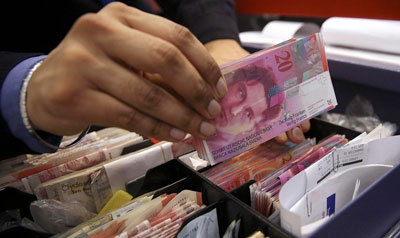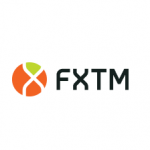Swiss Franc’s Leap Lifts Some FX Brokers

Even as some foreign-exchange brokers that focus on serving retail customers were getting hammered by the surprise surge in the Swiss franc earlier this month, other firms that deal mostly with big banks, hedge funds and other large clients were handling record amounts of business—and raking in profits.
At New York-based FastMatch Inc., which matches buy and sell orders for banks, high-frequency trading firms and asset managers, the sharp move in the Swiss currency made for the highest-volume day in the history of the three-year-old company.
FastMatch handled $24.3 billion in buy and sell orders in one day, more than double last month’s daily average.
“That day was our most profitable day ever,” said FastMatch Chief Executive Officer Dmitri Galinov.
A similar story played out at other brokers with major institutional clients after the Swiss National Bank ’s decision, announced Jan. 15, to scrap a three-year-old policy capping the value of the franc against the euro. In the minutes following the announcement, the franc leapt by roughly 30% against the euro, a swing of unprecedented magnitude for the two currencies.
At London-based ICAP PLC, the biggest so-called interdealer broker by revenue, volume that day on its EBS currency-trading platform was nearly triple the recent daily average. The platform handled some $300 billion worth of trades, according to a person familiar with the matter.
Interdealer platforms such as ICAP’s don’t take on much market risk but instead stand in the middle of bank and asset-management clients, earning fees as they match orders. For these businesses, profitability is closely linked to trading volume.
London’s LMAX Exchange, another electronic currencies-trading venue that mostly deals with large investors, benefited as customers closed out trades, said LMAX Chief Executive David Mercer.
“We were among the winners of the day,” he said, with volume surging about 40% above the daily norm the day of the announcement, to about $14 billion.
Mr. Mercer said volatility benefits firms like his, because “when you have crisis, people need access to liquidity.”
Elsewhere, KCG Holdings Inc. ’s Jersey City, N.J.-based Hotspot FX electronic-trading platform handled a record $60 billion in trading volume Jan. 15, about double its daily norm, according to a person close to the firm.
In contrast, many firms that help ordinary retail customers trade the currency markets lost out. Losses that might have been manageable were amplified by the use of borrowed money, or leverage, so that entire customer accounts were wiped out, and left with deficits. Firms were left trying to recover losses from clients or absorbing the losses themselves.
Last week, U.S. regulators took further steps to prevent a recurrence of such losses in the event of any future jolts to the currency markets, temporarily restricting the amount of borrowing, or leverage, used by traders by boosting margin requirements.
On Friday, Danish retail brokerage Saxo Bank Group said it expects to book a loss of up to $107 million stemming from the sharp jump in the Swiss franc.
“Clients that lost money can blame us, or they can blame themselves,” Saxo Bank Chief Financial Officer Steen Blaafalk told The Wall Street Journal.
The sharp move in the Swiss franc also forced New York-based FXCM Inc. to take out an $300 million emergency loan from Leucadia National Corp. , the holding company for investment bank Jefferies Group LLC. The SNB’s surprise announcement had left FXCM customers owing the big retail brokerage about $225 million, and the company warned it might be in violation of capital requirements as a result.
FXCM Chief Executive Drew Niv said late last week in an update on the Leucadia deal that FXCM’s entities had capital exceeding regulatory requirements and the firm “continues to operate in the normal course of business.”
The Wall Street Journal reported Friday FXCM is examining fundraising options to pay off the loan, such as potentially selling noncore assets including its roughly 32% stake in FastMatch.
Mr. Galinov said his firm, which is housed inside FXCM’s offices, is prepared to separate its trading entity from FXCM and is launching new services that connect asset managers’ orders with each other and with banks. One service is a potential challenger to the so-called “fix,” the long-standing currencies-pricing benchmark that is measured from trades executed around 4 p.m. in London each weekday.
Still, Mr. Galinov said FastMatch faces the challenge of winning back customers spooked by FXCM’s troubles. Following its record-volume day, “a lot of clients were not trading with us. We’re getting them back one by one.”
FastMatch started out in 2012 relying heavily on retail-trading flow from FXCM, and has gradually weaned itself from dependence on FXCM.
Last week, FastMatch’s daily volume topped out at just under $6 billion, still well below December’s daily average.
Source: wsj – Swiss Franc’s Leap Lifts Some FX Brokers





























